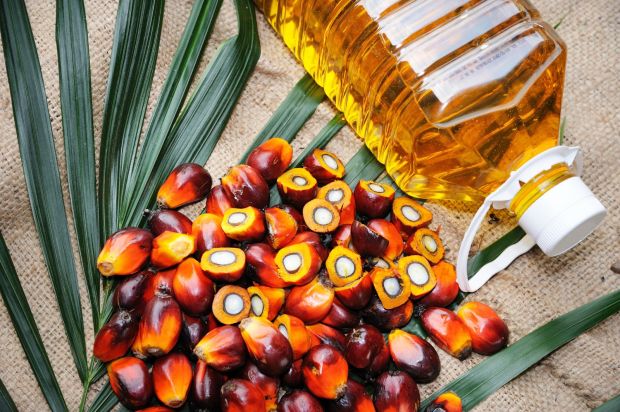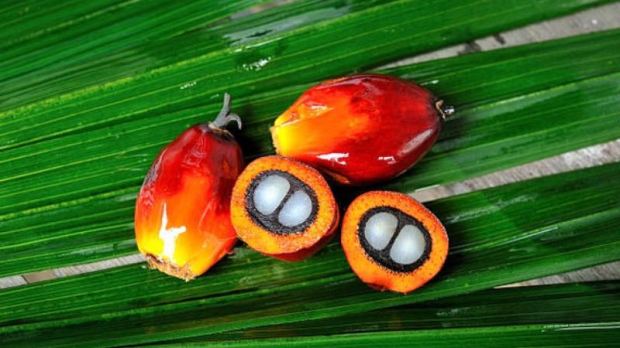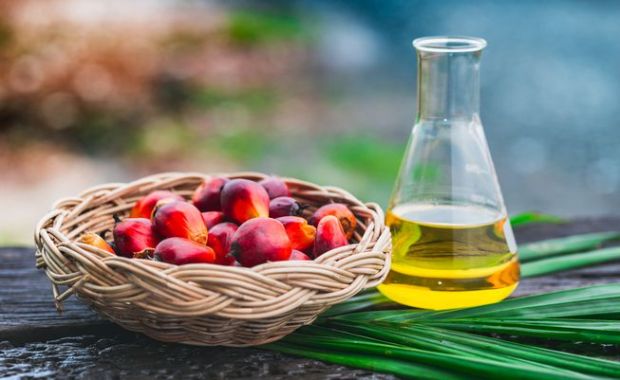
Today we are living in an era of stiff competition, right to information, media explosion and an open world market. With the enormous competitors emerging in every area of trade & commerce, not only consumerism has soared tremendous heights but also has provided global platform for all businesses. Talking about edible oil market, there are numerous varieties available with various gradations in order to cater to the consumer segments. Does expensive oils guarantee to be healthy or inexpensive ones are sure to be detrimental for health? Not only the time involved in growing the source of oil along with the complexity of its distribution and scarcity of resources adds to the cost but the consumer demand-supply economics contributes largely towards the same. MPOC (Malaysian Palm Oil Council) comes under the Ministry of Plantation Industries and Commodities of Malaysia which has taken the production and distribution of Palm Oil to a never before magnitude in the recent years.

While we are struggling hard globally to take care of our environment, growing of Oil Palm contributes towards the same as it is able to produce 10 times more oil per hectare of land compared to other oil crops. At the same time it is truly profitable as the high yield of Palm Oil can continue for 20-30 years. When oil palm trees grow old and cut down, their trunks are left to decompose to restore organic matter to the soil and complete the soil nutrient cycles. While these trunks are also made into furniture, the fronds are used as animal feed and for manufacturing fibreboard. Most importantly, Palm Biodiesel being nontoxic, eco-friendly & renewable too is certainly going to be the “Green Fuel” of the future, looking at the scarcity along with the skyrocketing prices of other prevalent fuels in the market. While India proves to be the highest importer of Palm Oil which has in fact got doubled up in the last Financial Year, we are looking forward for the propagation of its numerous benefits and versatile application apart from its positive contribution on our health. 🌱
Last year the Malaysian Palm Oil Council (MPOC) signed MoU’s with Mumbai Dabbawala Association (MDA) and The Solvent Extractor’s Association of India (SEA) to expand co-operation in areas of mutual interest to broadly promote the development and use of Malaysian palm oil and MSPO certified palm oil as a valuable commodity where the interests of the organisations are amenable through joint efforts. This includes educating consumers on the usage, nutritional and health properties of palm oil, disseminating information about Malaysian palm oil to enhance its application and elucidating its numerous strengths and benefits and upholding the good name of Malaysian palm oil by closing the gap between the issues of perception, allegations and the realities of palm oil, thereby to promote economic aspirations of the country including the Make in India philosophy to achieve self-sufficiency in edible oils. 💧

Being a Chef cum Food Blogger by passion, it is interesting for me to know that Palm oil is the most widely consumed vegetable oil on the planet. Malaysian cooking is influenced by Malay, Chinese and Indian traditions. Certified sustainable palm oil is an essential ingredient in many recipes. Its neutral flavour also makes Palm Oil a good substitute for butter when baking, or for mayonnaise in pasta and potato salads. Its smoke point, the temperature at which it starts to burn and smoke, is in excess of 450 degrees Fahrenheit, much higher than other better-for-you oils. Unlike other oils, palm oil doesn’t break down or lose its nutritional value at high heat. With its high smoke point, it’s a smarter choice for grilling, frying or sautéing than olive oil. Olive oil begins to degrade at 380 degrees Fahrenheit, canola at 400 degrees and coconut oil at 347 degrees Fahrenheit.
Palm oil is non-GMO (genetically modified organisms), balanced and ultra-nutritious. This naturally trans fat-free oil contains almost equal amounts of unsaturated fats and saturated fats. In the body, palm oil behaves more like a monounsaturated fat. It has virtually no adverse impact on your cholesterol levels. Palm oil is also a great source of vitamin E tocotrienols. This powerful antioxidant helps protect you from chronic diseases, and helps delay the aging process. Malaysian palm oil is the natural trans fat alternative for food manufacturers. Palm oil is semi-solid at room temperature. It consists of a healthy balance of saturated and unsaturated fatty acids. Palm oil is approximately 50 percent saturated while coconut oil is 90 percent saturated. Palm oil is also naturally resistant to spoilage and very versatile. It can be custom blended to create the ideal rich and creamy texture for a wide variety of foods.

THE USES OF PALM OIL:
Did you know, palm oil exist in our everyday life? Let’s have a look how…
It is in our food products, like cake and ice cream. It is an important component in bath soaps and hair shampoos. It is used to make cosmetic products. It is used to cook delicious food. It also exist in inks and wall paints.
Food Products:
Cooking oil made from palm oil does not leave any unpleasant taste in food. It also does not leave sticky residue on our pots and pans. Even the raw oil could be used in salads without any hesitation.
Vegetable ghee made out of oil palm enhances the taste of our dishes. This ghee is more nutritious than ghee made from cow’s milk. Also, these products are cholesterol-free and rich in Vitamin E.
Industrial frying oil made from palm oil is the popular choice because it is stable at high temperatures. This stability enables a longer shelf life and high reusability. This allows the industry to keep its cost low.
Margarine made from palm oil is the best margarine because it does not need to undergo the hydrogenation process which produces trans-fat.
Fats and fat blends made from palm oil are used to make cakes since it does not melt easily. It also gives the creamy taste in ice creams and chocolates.
Non Food Products:
Personal Care Products and Cosmetics: Lipstick, soap, shampoo, hair conditioner, toothpaste, deodorant etc.
Household Cleaning Products: Laundry detergents, fabric softeners, household detergents etc.
Industrial Products: Printing Ink, Paint, pesticides etc.

Here are a few health benefits of Malaysian Palm Oil:
1. Malaysian red palm fruit oil has more carotene than tomatoes or carrots. It is a rich source of beta-carotene, an antioxidant that helps strengthen the body’s immune system, and is associated with a reduced risk of cancer, heart disease and cataracts.
2. Malaysian palm oil has more vitamin E than any other vegetable oil. Vitamin E is a powerful antioxidant capable of reducing the harmful free radicals in the body. It helps to support overall health while delaying the aging process.
3. Malaysian red palm oil is a solid fat, so does not have to undergo unhealthy hydrogenation. Hydrogenation of oils produces trans fatty acids, which have been implicated in numerous diseases including breast cancer, colon cancer and heart disease. Trans fats are also believed to impair development in new borns.
4. Vitamin E tocotrienols derived from Malaysian red palm oil have been shown to reduce neurological damage due to stroke. They may also enhance the speed of stroke recovery.
5. The vitamin E tocotrienols in Malaysian red palm oil support the brain’s white matter health. A two-year human clinical study demonstrated that tocotrienols weaken the progression of white matter lesions, which may reduce stroke risk.
6. Malaysian red palm oil’s vitamin E tocotrienols may slow your body’s ability to create new fat cells and kill off some of the fat cells you already have.
7. Malaysian red palm oil’s vitamin E tocotrienols appear to protect the livers of adults diagnosed with high cholesterol and Non-Alcoholic Fatty Liver Disease (NAFLD). NAFLD is one of the most common liver disorders, possibly triggered by obesity, insulin resistance, lipid peroxidation and oxidative stress.
8. Malaysian red palm oil has a neutral effect on cholesterol. Its effects on blood cholesterol levels are similar to olive oil, and better than common cooking oil blends.
9. The carotenes in Malaysian red palm oil may help protect your skin against UV damage. It’s like sunscreen from the inside out.
10. Palm oil may even help you lose weight. Healthy fats improve your satiety so you might end up consuming fewer calories.

Because of its manifold benefits and great success in the Global platform, Palm Oil has drawn attention and criticism from all over. While some claim that this oil is cheap and hence unhealthy, some target at the environmental issues that might erupt because of the deforestation to cultivate oil palm. The above mentioned benefits and contribution towards environment is a clear testimony of Palm Oil as a clear winner to zip all voices that arise to mislead and defame this profitable business. Rather than getting carried away by the rumours around, it would be diligent enough to analyse the facts & figures that are real. For more details on Malaysian Palm Oil Council (MPOC), please visit their website on https://www.mpoc.org.in

Pics courtesy: MPOC & Google

Great post and very well emphasized points on its health benefits. Thanks for Sharing
LikeLike